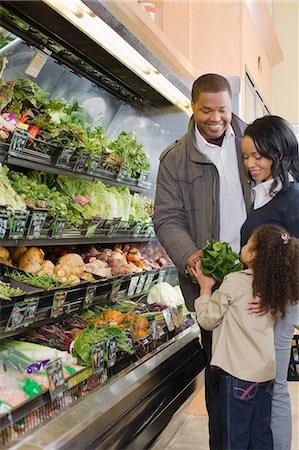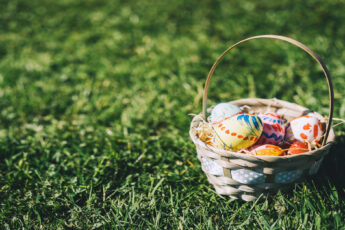Food and nutrition are political issues. MommiNation sat down with award-winning author, Dr. Ashante Reese, to talk about the politics of food.
MommiNation: Dr. Reese, your research centers on food-justice, what is food justice?
Dr. Reese: Food Justice is a concept that is trying to think through how we make our food system more equitable. So, that would include increasing access to healthy food, but also things like fair wages for people who are doing farm work. I would include things like the “Fight for $15 Campaign” for fast food workers. Another part of food justice is to think about how we shift power so that what is concentrated in the hands of a few is distributed on a more communal level. That might be supermarkets or things like land. So, my concern is how do we get justice for Black farmers so that we can increase the number of Black farmers who then also might feed their communities. And, lastly, some people don’t agree with this, but I think it’s becoming more common to think about food justice as a racial justice issue, as well. To think very explicitly about how inequality is patterned along race.
MommiNation: One of the terms that people are talking more about these days is “food insecurity.” What does that term mean?
Dr. Reese: Food insecurity is a measurement of the amount of days that someone in a household, like a parent or child, goes hungry. So, that means someone is missing meals on a regular basis. Food insecurity is not as holistic as food justice. Often, when people are trying to address food insecurity they think of things like food banks or soup kitchens, or temporary or emergency food provisioning systems.
MommiNation: What are other key concepts that are part of the vocabulary of food justice?
Dr. Reese: It is important to know about “food swamps” and “food deserts.” Food swamps are places where the amount of what we might call unhealthy food vastly outweighs access to healthy food. Food swamps are usually measured by store type. So, low numbers of supermarkets and grocery stores relative to high numbers of fast food, liquor stores, corner stores. Food deserts are neighborhoods in urban areas that do not have a supermarket within one mile, or sometimes it’s a half a mile depending on car access, etc.
MommiNation: You have pointed out that you think that the concept of food deserts is limited. How so?
Dr. Reese: The problem with food desert as a measurement is it doesn’t capture things like racial composition of a neighborhood. It doesn’t capture the processes that created the problem.
MommiNation: If “food desert” is a limited concept, what language do you use?
Dr. Reese: Some people, myself included, use terms like “food apartheid.” Food apartheid requires us to think about the policies and practices that are connected to race and racism that created unequal distribution of food. Some people get uncomfortable with the use of apartheid because they connect it to the history of apartheid in South Africa. But, actually, that’s a good connection because apartheid is about the legal structures of separation that created these hierarchies of experience. And, that’s exactly what we’re trying to point to what we talk about food apartheid.
MommiNation: Are there people or organizations who are addressing these issues?
Dr. Reese: There’s a project called the Victory Bus Project that gives fruits and vegetables to families, but they also give them rides throughout upstate New York to take them to see their loved ones who are incarcerated. This is a group of people who have been thinking really creatively and expansively around how food intersects with other issues. You know, people who are experiencing food insecurity are more likely to also be people who have family members who are incarcerated, or live in neighborhoods that are over policed, or live in neighborhoods where the schools are not so good. There are ways that we might consider how these issues intersect, and how we can intervene.
MommiNation: What are some of the everyday ways that food justice issues affect us?
Dr. Reese: I remember a few years ago when Mexican farmers in Mexico were on strike. So, there was an avocado shortage and avocado prices were going up. I was still in Atlanta. And there’s this raw vegan place that everyone loves, and they had to raise their prices. And I was following this discourse in my Facebook group and people were complaining. And I was like, “Do you even know why the price of avocados are going up? Because people who are harvesting avocados are fighting for their livelihood!” But, in the US, we live in a world such that most of us do not think about that. We don’t have to. It’s like being at the top of the food chain. You know, you don’t look down. That’s what’s important about studying food. There are so many connections. We get to see how people place themselves within a web of food relations.
MommiNation: So, scholars who do work in food justice see food as political.
Dr. Reese: This is not new. This is what the Black Panther Party was saying, right? ‘We feed people, we feed their bodies. We give them the thing that they need and it allows us to also have access to their minds to do political education around other things.’ My students are always so shocked when I ask, “Why do you think the Black Panther Party was taken down?” I have them read about Nixon and COINTELPRO. I’m like, it’s because they were feeding people! That tells you something– that our government went after them because they were feeding 4 and 5 year-olds. They created a pre-K program based on feeding 4 and 5 year-olds. You’ve got to know that that is some powerful shit to make the whole government try to take you down when they could have taken you down even before that. But, it is when you start giving out free food that they come for you. So, I think it’s important to think about food justice and food as something that’s underestimated.

BIO: Dr. Ashanté Reese is Assistant Professor of African and African Diaspora Studies at the University of Texas at Austin. She is the author of “Black Food Geographies: Race, Self-reliance, and Food Access in Washington DC”, and co-editor (with Hannah Garth) of the book, “Black Food Matters: Racial Justice in the Wake of Food Justice.”








Leave a Reply